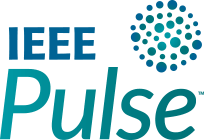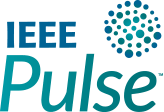The long anticipated day has finally arrived: the “Match Day” that could have been. Once medical students choose their specialty at the beginning of their fourth year (i.e., pediatrics, surgery, neurology, etc.), they apply to residency programs in that specialty. The application process is relatively similar to the typical medical/graduate school application processes: submit an application with some sort of personal statement, pester professors to get the necessary number of letters of recommendation, and then wait for interview invitations. However, the big difference comes after the interview phase. Normally, for medical or graduate school admissions, applicants wait for decisions (i.e., acceptance, rejection, and waitlisting) and then can make a choice to accept the offer of admission made by a school and/or to remain on a waitlist for a different school. However, this is not the case for residency programs, which have a “match.” After interviewing, applicants make a ranked list of residency programs in order of preference. Simultaneously, the residency programs make a ranked list of the candidates in order of preference. Then, a computer matches applicants to residency programs based on comparing the ranked lists from the residency programs and the applicants. Sometime in March, during the fourth year of medical school, applicants are notified whether they were matched to a residency program. Then, a few days later, Match Day occurs when every applicant gets a letter telling him/her which residency program he/she will be attending. For all intents and purposes, Match Day represents the end of medical school. You know where you are going for residency, and you are a couple of months away from finally obtaining the intensely coveted M.D. degree.
This year’s Match Day is special because it is when my medical class graduates (we were classmates for the first two years of medical school, and then we split when I entered graduate school to pursue a Ph.D. degree, while most continued on to complete the remaining two years of medical school). I have noted in previous columns that this time has the reputation of being particularly depressing for M.D./Ph.D. students because their classmates are making forward progress and moving on to residency, while they are fumbling around in their second year of graduate school with no end in sight. Now that this day is finally here, I can say that I don’t feel that at all. Almost two full years into graduate school, I feel so far removed from medicine (including only small fragments of medical knowledge remaining in my brain) that the idea of residency is so absurd (too absurd to feel sadness or envy). Therefore, I definitely don’t feel the sadness or that I should be joining them as they become doctors and move onto residency. But it is still a weird time—the majority of people I have known since my first week in Boston, almost four years ago, will be moving to all parts of the country. In addition, it is funny that my contemporaries are now doctors.
My lack of emotional response to Match Day might also be due to my recent attendance at my first scientific conference in graduate school, which made me excited to do science (for the short term at least). It was very encouraging to see many different completed (and successful) projects. It really made me appreciate how cool science can be when it works, which I think is very easy to forget when you are muddling around in lab on a day-to-day basis. Attending a conference was encouraging for two reasons. First, every day in lab makes it seem like I don’t know anything. However, at the conference, I was able to confidently talk with other scientists at varying levels of their careers (from fellow graduate students to principal investigators) about my project. In addition, I was able to listen to talks and/or look at posters and was actually able to follow the story that the presenter was trying to tell. This was a stark contrast to when I started graduate school. I think these signs of progress are really important to acknowledge and appreciate during the long road of graduate school education. In specific reference to my classmates’ Match Day, during each talk I understood where current clinical knowledge ended, which highlighted the extreme importance of research in answering a wide range of biomedical problems that continue to trouble clinicians and still remain to be solved. This really made me appreciate having the opportunity to learn how to do research despite the frustration that it can cause. It is easy to forget at times, particularly when your project has hit a roadblock, the purpose of research and, thus, the importance of persevering. I’m not sure it should have taken a conference to remind me of all this, but I am glad it did.
As my classmates are set to graduate, it is interesting to reflect on the past four years. When I started writing this column, I was 21 years old and had just graduated from college. It seems like a lifetime ago, even though it wasn’t all that long in reality. Now, it is four years, half an M.D., and some percentage of a Ph.D. later. Despite the day-to-day and week-to-week ups and downs, I can confidently say that I wouldn’t have done it any other way. Looking forward, as I prepare to embark on year five (or “grade 21”) of this M.D./Ph.D. program, I am hoping the second half will be as good as the first.
Login to IEEE Pulse
Reset Password
Enter the username or e-mail you used in your profile. A password reset link will be sent to you by email.


